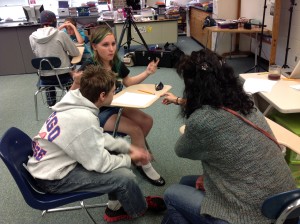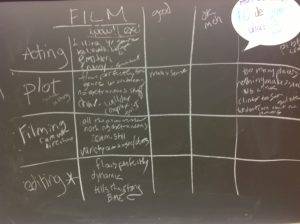I have had a rash of opportunities lately, both ones I applied for and some where they reached out to me. This may seem obvious, but as artists, educators, community leaders, we’re typically always looking for our next gig. But we too often forget that what begets success, even in the face of what looks like failure, is less WHO we are than HOW we are.
Duh, right?
Yet, I know that at least two of my current projects came to me, not because I was the “best” (most stellar, most talented), nor even because I am “very good” — I am, but so are hundreds of others. I was selected because of how I work. By the same token, I have selected others based on their interactions and their working reputations, and it is surprising to me how little attention folks give to that sort of thing.
So here’s three tips for Landing the next one!
Lose graciously and mean it
“Hi Holly
Thanks for letting me know. If I can ever be of any assistance, please feel free to contact me.
Many Thanks and Continued Success”.
I received the above note after passing along the information that this person was not selected by my client. Guess what? I am personally going to seek out opportunities for this person, and hope that we get a chance to work together. Being able to find sincere gratitude for being considered will separate you from all those people who are annoyed that their superiority wasn’t recognized. Who wants to work with people like that? Most of us would rather work with people who are okay with not being right all the time. Cultivating that ability in yourself will have positive ripples in everything you do — it is one of the key ingredients of being a real team player.
Be a Great Worker
That means be a hard worker. You’d be surprised how many people think they have a reputation as a hard worker, when actually their reputation is less than stellar. Part of being a hard worker is setting benchmarks, making sure they are realistic, and then meeting them. This is a great way to make sure everyone is on the same page every step of the way, and meeting deadlines will help establish your reliability.
Be a good communicator
This means a few things.
- Do NOT use long form narrative as your email style. Outlines, bullet points, and clear formatting makes the information easy to pull out. Try to be concise, even when you use bullets, but don’t leave anything out that will necessitate a follow up.
- Make sure your phone message box is both set-up and not too full. Even though most people don’t use voice mail personally anymore, it’s still really important for getting jobs. Check your messages frequently and then follow up.
- If something is unclear, ask, in a nicely formatted question with a short recap. Consider sending a “checking in” email at the midway point to make sure you’re on track.
Be outcome oriented
What does a successful outcome look like, in precise terms? How will we know? People tend to be more clear about desired outcomes when discussing a concrete object, but you need to have clear expectations regardless of the product. Become good at asking those questions, even in the application stage. Your clarifying questions will mark you as a teammate worth having, and you will be remembered.



